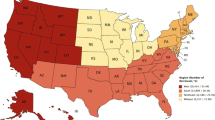Abstract
Introduction
Due to several reasons, in some countries commercial oocyte donation is not possible. Accordingly, patients should find their own donors who may be over 35 years. The aim of this study was to compare the results of oocyte donation from donors <35 years (young donors) and donors ≥35 years old (older donors).
Material and Methods
A retrospective cohort study was conducted at a single academic reproductive center. We compared the results of oocyte donation from donors <35 years (345 cycles) and from donor ≥35 years old (83 cycles). We also performed subgroup analysis for single embryo transfer (SET) and fresh and frozen embryo transfers.
Results
Recipient demographic characteristics of the 2 groups were comparable. The age of the donors was 29.8 ± 3.9 years in the young donor group and 37.6 ± 2.1 years in the older donor group (P <.0001). Pregnancy and implantation rates in the recipients from young donor group were statistically significantly higher than those from the older donor group (50.7% and 40.9% vs 38.3% and 23%; P =.04, P <.001). Cumulative pregnancy and live birth rates were significantly higher in the young donor group compared to the older donor group (86.1% vs 57.4% P <.0001 and 52.2% vs 33.3%, P =.02, respectively). Subgroup analysis showed comparable pregnancy and live birth rates for SET cycles (45.5% vs 40.4% and 25.0% vs 21.2%, respectively) and fresh cycles (54.7% vs 42.6% and 35.8% vs 29.6%, respectively).
Conclusion
In nonanonymous oocyte donation programs, donation from older donors with good ovarian reserve is an acceptable approach when young donor is not available.
Similar content being viewed by others
References
Trounson A, Leeton J, Besanko M, Wood C, Conti A. Pregnancy established in an infertile patient after transfer of a donated embryo fertilised in vitro. Br Med J (Clin Res Ed). 1983;286(6368):835–838.
Matthews TJ, Hamilton BE. Delayed childbearing: more women are having their first child later in life. NCHS Data Brief. 2009(21):1–8.
Kawwass JF, Monsour M, Crawford S, et al. Trends and outcomes for donor oocyte cycles in the United States, 2000–2010. JAMA. 2013;310(22):2426–2434.
Hamilton BE, Hoyert DL, Martin JA, Strobino DM, Guyer B. Annual summary of vital statistics: 2010–2011. Pediatrics. 2013;131(3):548–558.
Yaron Y, Botchan A, Amit A, Kogosowski A, Yovel I, Lessing JB. Endometrial receptivity: the age-related decline in pregnancy rates and the effect of ovarian function. Fertil Steril. 1993;60(2):314–318.
Navot D, Drews MR, Bergh PA, et al. Age-related decline in female fertility is not due to diminished capacity of the uterus to sustain embryo implantation. Fertil Steril. 1994;61(1):97–101.
Dunson DB, Baird DD, Colombo B. Increased infertility with age in men and women. Obstet Gynecol. 2004;103(1):51–56.
Baird DT, Collins J, Egozcue J, et al. Fertility and ageing. Hum Reprod Update. 2005;11(3):261–276.
Tufan E, Elter K, Durmusoglu F. Assessment of reproductive ageing patterns by hormonal and ultrasonographic ovarian reserve tests. Hum Reprod. 2004;19(11):2484–2489.
Sauer MV. The impact of age on reproductive potential: lessons learned from oocyte donation. Maturitas. 1998;30(2):221–225.
Gardner DK, Lane M, Stevens J, Schlenker T, Schoolcraft WB. Blastocyst score affects implantation and pregnancy outcome: towards a single blastocyst transfer. Fertil Steril. 2000;73(6):1155–1158.
Gardner DK, Surrey E, Minjarez D, Leitz A, Stevens J, Schoolcraft WB. Single blastocyst transfer: a prospective randomized trial. Fertil Steril. 2004;81(3):551–555.
Practice Committee of American Society for Reproductive M; Practice Committee of Society for Assisted Reproductive Technology. Recommendations for gamete and embryo donation: a committee opinion. Fertil Steril. 2013;99(1):47–62.
Shulman A, Frenkel Y, Dor J, Levran D, Shiff E, Maschiach S. The best donor. Hum Reprod. 1999;14(10):2493–2496.
Cohen MA, Lindheim SR, Sauer MV. Donor age is paramount to success in oocyte donation. Hum Reprod. 1999;14(11):2755–2758.
Rotsztejn DA, Ord T, Balmaceda JP, Asch RH. Variables which influence the selection of an egg donor. Hum Reprod. 1992;7(1):59–62.
Balmaceda JP, Bernardini L, Ciuffardi I, et al. Oocyte donation in humans: a model to study the effect of age on embryo implantation rate. Hum Reprod. 1994;9(11):2160–2163.
Faber BM, Mercan R, Hamacher P, Muasher SJ, Toner JP. The impact of an egg donor’s age and her prior fertility on recipient pregnancy outcome. Fertil Steril. 1997;68(2):370–372.
Wang YA, Farquhar C, Sullivan EA. Donor age is a major determinant of success of oocyte donation/recipient programme. Hum Reprod. 2012;27(1):118–125.
Abdalla HI, Burton G, Kirkland A, et al. Age, pregnancy and miscarriage: uterine versus ovarian factors. Hum Reprod. 1993;8(9):1512–1517.
Wong IL, Legro RS, Lindheim SR, Paulson RJ, Sauer MV. Efficacy of oocytes donated by older women in an oocyte donation programme. Hum Reprod. 1996;11(4):820–823.
Barton SE, Missmer SA, Ashby RK, Ginsburg ES. Multivariate analysis of the association between oocyte donor characteristics, including basal follicle stimulating hormone (FSH) and age, and IVF cycle outcomes. Fertil Steril. 2010;94(4):1292–1295.
Pennings G, de Mouzon J, Shenfield F, et al. Socio-demographic and fertility-related characteristics and motivations of oocyte donors in eleven European countries. Hum Reprod. 2014;29(5):1076–1089.
Yeh JS, Steward RG, Dude AM, Shah AA, Goldfarb JM, Muasher SJ. Pregnancy outcomes decline in recipients over age 44: an analysis of 27,959 fresh donor oocyte in vitro fertilization cycles from the Society for Assisted Reproductive Technology. Fertil Steril. 2014;101(5):1331–1336.
Author information
Authors and Affiliations
Corresponding author
Additional information
Authors’ Note
The study was conducted in Montreal, Quebec, Canada, McGill Reproductive Center, McGill University Health Center.
Rights and permissions
About this article
Cite this article
Shavit, T., Hasson, J., al Ma’mari, N. et al. Oocyte Donation From Donor Older Than 35 Years. Is It Worth Trying?. Reprod. Sci. 26, 503–509 (2019). https://doi.org/10.1177/1933719118776791
Published:
Issue Date:
DOI: https://doi.org/10.1177/1933719118776791




